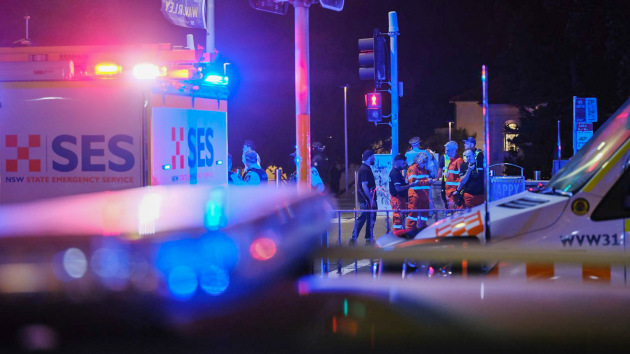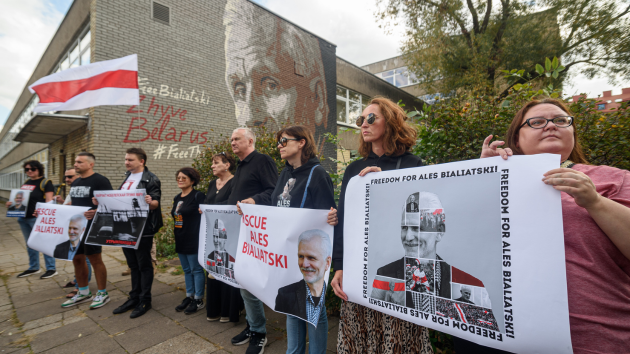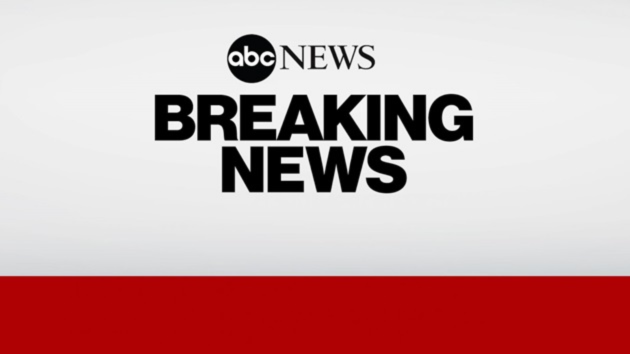As Russia holds elections, Putin opposition fights to survive and adjust to life after Navalny
Written by ABC Audio ALL RIGHTS RESERVED on March 15, 2024
(MOSCOW) — For days after the funeral of the Russian opposition leader Alexei Navalny, thousands of people continued to line up outside the cemetery in southern Moscow waiting to lay flowers at his grave.
They came to honor the Kremlin’s most formidable critic, defying the intimidating presence of police and fears of arrest. Navalny’s grave eventually disappeared under a 6-foot mound of thousands of carnations and roses.
The funeral became the largest public expression of dissent in Russia in the two years since President Vladimir Putin launched a suffocating crackdown following his full-scale invasion of Ukraine. In Moscow, large crowds chanted slogans against Putin and the war, unheard since the first days of the invasion.
The lines of mourners in the days after — that sometimes stretched for more than a mile — were also quiet expressions of defiance in a country where support for Navalny has been outlawed as “extremist.”
But while the funeral showed dissent still exists in Russia, it also underlined how much control the Kremlin now has. Navalny’s death in an Arctic prison colony last month has blown an enormous hole in Russia’s democracy movement and opposition to Putin appears to have never been more dangerous.
This weekend, Russia will hold elections that will hand Putin a fifth term as president, extending his already 24-year rule by another six years.
Putin faces no real challengers, with anti-war candidates blocked from the ballot and virtually all leading opposition figures either in jail, exile or dead. Most independent media are shut down or driven abroad and criticism of the authorities is now effectively criminalized.
Confronted with that bleak landscape, Russia’s democratic opposition and Navalny’s team are trying to find a way forward, saying they are determined to continue their struggle but acknowledging it has never been so difficult.
“We have no choice but to continue,” Leonid Volkov, Navalny’s longtime chief of staff, told ABC News in an interview this month.
Navalny “was, like, a never-give-up person. And, if we would stop now, it would be like a betrayal of his legacy. But he is not replaceable,” Volkov said.
Volkov, like most of Navalny’s team, lives in exile, in his case in Lithuania, and would face arrest if he returned to Russia. He, like the rest of Navalny’s former colleagues, is now supporting Navalny’s widow Yulia Navalnaya, who has vowed to step in to lead the movement her husband built.
Navalny’s team is accusing the Kremlin of murdering him in prison, and Volkov said he and the movement’s other leaders understood the risks to themselves now were also very high.
“We are well aware of these personal risks, but it’s our choice to keep going,” he said.
A week after ABC News spoke to Volkov, he was attacked outside his home in Vilnius by an assailant with a hammer. In a video posted afterward, Volkov said the attacker struck him 15 times, injuring his leg and breaking his arm.
Volkov blamed the assault on Putin. “This is obviously a typical, characteristically gangster-ish hello from Putin,” Volkov said in the video posted after the attack.
Lithuania’s authorities also blamed Putin’s regime, with its counter-intelligence service saying the attack on Volkov was likely an attempt to damage the opposition ahead of the presidential election.
Volkov, though, has said he is undeterred.
Navalny’s team has called for a guerrilla protest on election day, telling people to gather quietly at midday on Sunday outside polling stations and encouraging them to vote for any candidate except Putin or to spoil their ballots. They have told people not to chant slogans or openly protest, saying such actions are too dangerous.
Yulia Navalnaya on Thursday also called for Western countries not to recognize the results of the election as legitimate.
Buttressed by his near-total control of the media, Putin does still have substantial support in Russia, and many accept his framing of the war, although apathy toward politics is also widespread. Polling in February by the Levada Center, one of Russia’s only independent pollsters, showed an approval rating for Putin of over 80%, although fear of retaliation makes polling in Russia unreliable.
In the run-up to the election, there were still glimpses of anti-war sentiment that exists below the surface.
Boris Nadezhdin was a little-known, veteran liberal politician until December when he announced he would run against Putin on a moderate platform calling for an end to the war. Nadezhdin quickly became an unlikely lightning rod for dissent. Long lines of people began appearing outside his campaign headquarters to give their signatures to back his candidacy.
Nadezhdin said he had gathered around 200,000 signatures. But, in the end, he was kept off the ballot by authorities, who declared his signatures invalid, a tactic frequently used to block Kremlin critics from running, according to experts.
Nadezhdin, in an interview with ABC News in February, said he was blocked from running because the Kremlin had seen his candidacy was rising in the polls.
“It’s the only reason. If my rating was 1% or 2%, no problem to register me,” he told ABC News.
“I am sure that the majority of people in Russia want the Special Military Operation be stopped as soon as possible,” he said, using the Kremlin’s term for the war.
Asked why he was able to criticize the war and campaign when others face arrest and persecution, Nadezhdin said it was primarily because, unlike Navalny, he never criticized Putin personally. He said it is also because he has personally known some Kremlin senior officials for more than two decades.
In the 1990s, Nadezhdin worked with Sergey Kiriyenko, who now oversees domestic politics for the Kremlin. Nadezhdin served as an aide to Kiriyenko when he was briefly prime minister before Kiriyenko turned away from liberal politics.
“I am familiar with the leaders of Kremlin administration, and I am the same generation, they know me personally. It works in Russia,” said Nadezhdin. He insists, however, he never sought the Kremlin’s blessing before running.
Despite his hopes that his relationship with the Kremlin might shield his campaign, this week Nadezhdin’s local campaign manager was beaten up by unknown attackers in Vladivostok.
Nadezhdin has not called on his supporters to take part in the election day demonstrations called by Navalny, only calling for people to vote against Putin.
Volkov said the election day actions won’t stop the Kremlin producing a rigged result, but will undercut its claims there is near universal support for Putin.
“We don’t expect that those votes be counted. They will not,” he said. “But people will come together. They’ll see each other. And they’ll have this feeling that they actually exist. They’re actually not the marginal minority as the propaganda pretends they are.”
Copyright © 2024, ABC Audio. All rights reserved.







